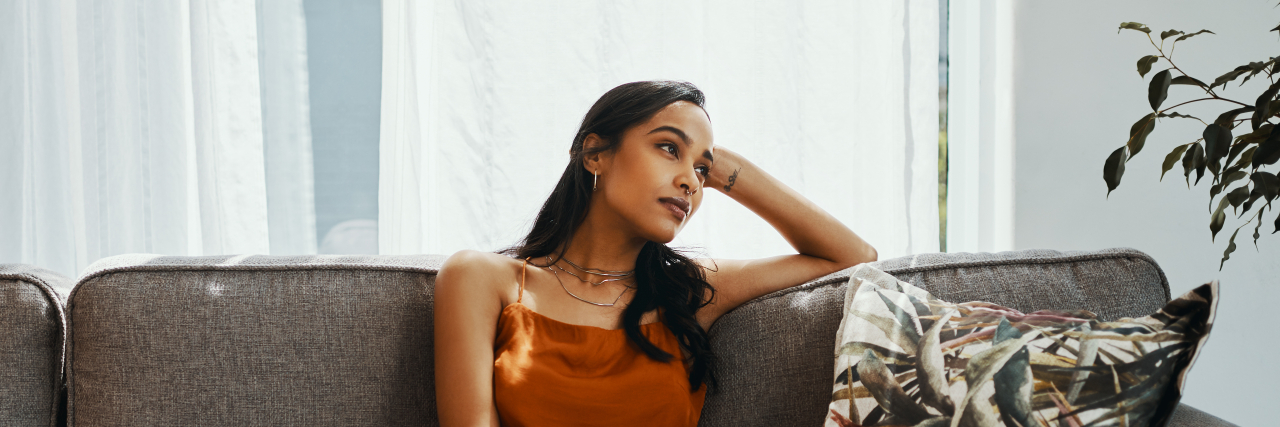So You’re Newly Disabled Due to COVID-19. Here’s Some Advice.
Becoming disabled can be a jarring and scary experience that takes a lot of adjustment. New access needs, symptoms, specialists to see, or maybe even medical equipment. Your entire lifestyle changes. So many things you could do before may be difficult, impossible, or need extra steps, tools, or assistance.
Naturally, it comes with a lot of grief too.
No one really tells you what to expect because we don’t even like discussing disability as a whole and treat the topic of becoming disabled as a curse.
Disability isn’t a curse or a punishment. It isn’t something that’s deserved because of choices you did or didn’t make. It just is. I know how complex feelings are and how alone it can feel navigating a new world, so here’s some advice from someone who also became disabled due to an illness.
1. First things first, let’s get the obvious out of the way: Rest.
Rest is of the utmost importance. It is so hard to accept new limitations and the fact that our body may not have the same capacity it had before. Whether you’re now dealing with severe chronic fatigue, pain, brain fog, etc. your body needs a chance to get its bearings and do whatever recovery it’s able to do. This means taking more breaks, sitting when possible, using mobility aids, etc. It’s so easy to overexert yourself and, especially if you have long COVID, that can be extremely damaging.
2. Find community.
Whether it be with just others who have been disabled by COVID-19 or disabled people in general, it is so helpful to be surrounded (whether physically or virtually) by others who may be able to understand what you’re going through. We may not all share 100% of the same experiences, but it can be helpful to commune with those who get it for the most part.
When I first became disabled, I knew very few other disabled people with whom I could share my experiences, and the fact that ableism is so ingrained in everyday life made it extremely isolating to be amongst my non-disabled peers. I needed someone who could give me the space to feel the complex emotions I felt as a result of my disability without having to face a chorus of “you’re not disabled” “it’s not that bad” “you’re just not trying hard enough” “claiming it gives it power” or whatever other toxic positivity could be thrown at me. I just wanted to be able to talk about my grief, my struggles as well as the things that brought me joy in this newly disabled life with others who understood.
Building and joining the communities I have has granted me resources I would have never found on my own as well as helped me build the confidence and love I needed to exist without shame.
3. Document everything.
Every test taken, referral, diagnosis, or change in your chart. If you ever need to apply for disability for long COVID (which is already hell) this will be absolutely necessary. It’s also helpful when you meet a new specialist or go back to one you’ve seen before to report on your symptoms or concerns. It can be hard to remember everything you wanted to mention once you’re in the office, but this makes things a bit easier when recalling changes in your condition.
4. Don’t be afraid to use mobility aids or ask for accommodations.
This one is easier said than done. We’ve been conditioned to find shame in not being able to do things without help. Hyper independence is the default and any need for accommodation is viewed as a character fault rather than a reflection of the different needs we all have. You’re not a failure for needing help or things adjusted for your access. It’s going to take some time and you’re going to feel like everyone in the world has their eyes on you. You might even have to deal with the occasional ableist asshole who thinks what you need or use is their business. Try not to let this deter you. Remember that at the end of the day, your health, needs, and access matter more than anyone else’s opinions.
This naturally barely grazes the surface of helpful advice, but disability is an expansive, diverse experience and there’s, unfortunately, no real one-size-fits-all approach to advising newly disabled people. There are so many intersections with disability (like race, gender, and sexuality) that make every piece of advice unfit for every case. We don’t all have access to the same resources either. When I became disabled, these were the biggest lessons I had to learn, long before I got comfortable tackling ableism or the medical system.
Getty image by Delmaine Donson.

